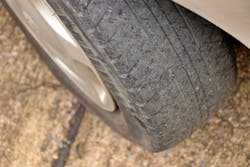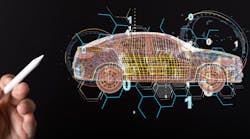Artificial intelligence will not solve our country’s pressing road safety problems on its own. Humans must play a role in ensuring all cars are fit to drive. Unfortunately, in this political environment that favors hyperbolic soundbites over nuanced examination of public policy, some lawmakers have opted to ignore how regular vehicle safety inspections conducted by humans save thousands of lives annually. These programs will also continue to save lives in the future, even as newer vehicles grow increasingly reliant on autonomous vehicle (AV) and advanced driver assistance systems (ADAS) technologies.
The NRSS segments its approach into five categories: safer people, safer roads, safer vehicles, safer speeds, and post-crash care. It summarizes “safer vehicles” as the effort to “Expand the availability of vehicle systems and features that help to prevent crashes and minimize the impact of crashes on both occupants and non-occupants.” DOT noted that “The role of vehicle safety performance in avoiding or mitigating the harm of crashes cannot be overstated.” Safe driving advocates were therefore dismayed when they realized this plan only mentions these programs once. In passing, it states, “To ensure the safe operations of commercial trucks and motor carriers, the Department continues to identify high risk companies and operators of commercial motor vehicles using a data-driven and performance-based approach, including roadside commercial vehicle safety inspections.” However, the safer vehicle approach focuses on ADAS and AV technology as if it were a panacea.
There’s a troubling disconnect between the NRSS’s stated goals and the tactics prioritized. That disconnect widens when one considers the heightened need for AVs and vehicles equipped with AV technology to undergo regular safety inspections. The cameras and sensors that allow such vehicles to navigate the environment around them and detect problems in the vehicle’s own condition are prone to misalignment throughout life on the road. These sensors are often mounted on very thin metal brackets and are sometimes exposed rather than being contained safely behind a bumper. A light collision causing no visual damage or a bump from a shopping cart can easily cause misalignment.
Furthermore, driverless cars can’t rely on a human to detect signs of a defect, such as screeching brakes, that a car owner would ordinarily notice. In fact, their owners could likely reside hundreds of miles away and be occupied managing large fleets. While cars do have sensors that alert drivers and passengers when tire pressure or engine oil is low, the scope of issues these sensors can detect is limited and they cannot be relied upon to indicate issue severity. Vehicles with misaligned sensors will not operate as intended and could constitute a safety hazard.
DOT’s absence of leadership by not integrating vehicle safety inspections into the NRSS has consequences. Last week, the Texas Legislature passed a bill that completely eliminates the annually required inspection. Opponents of vehicle safety inspection in that body singled-out the program to provide a victory in their political war against bureaucracy. Governor Abbott will likely sign House Bill 3297 into law, and it would take effect in 2025. This decision directly contradicts the 2018 University of Texas study mandated by legislation that Governor Abbott signed into law in 2017. That study found that “the Inspection Program saves lives and enhances safety.” It recommended “a further study to consider whether potential additional inspection items… should be included in the Inspection Program to further enhance highway safety in Texas.” Texas is making a deadly mistake by rolling this program back instead of expanding it.
It's not too late for NHTSA to update the NRSS by adding inspections and advance a more holistic approach. Congress can act, too. Any new legislation concerning vehicle safety must include regular inspections by a qualified human inspector, as well as post-repair inspections following a collision repair. Some members of Congress are pursuing legislation that would establish a nationwide AV regulatory regime. This bill presents an ideal vehicle (no pun intended) to mandate regular inspections by a human and ensure AVs are part of the safety solution, not the problem.



